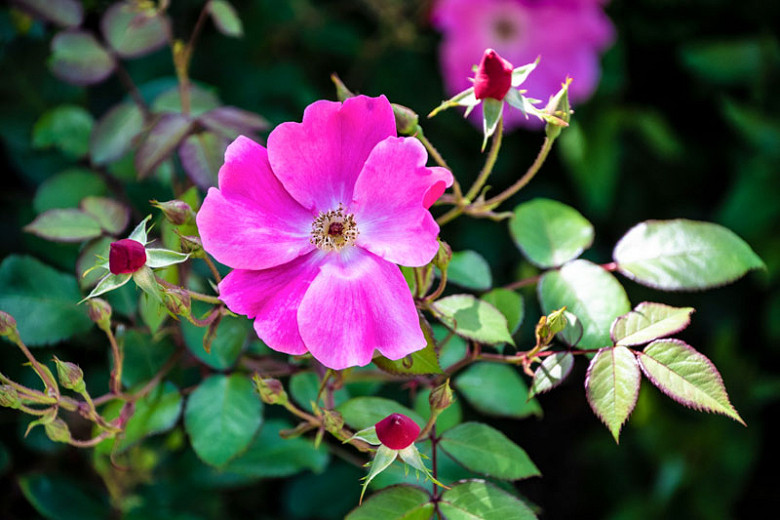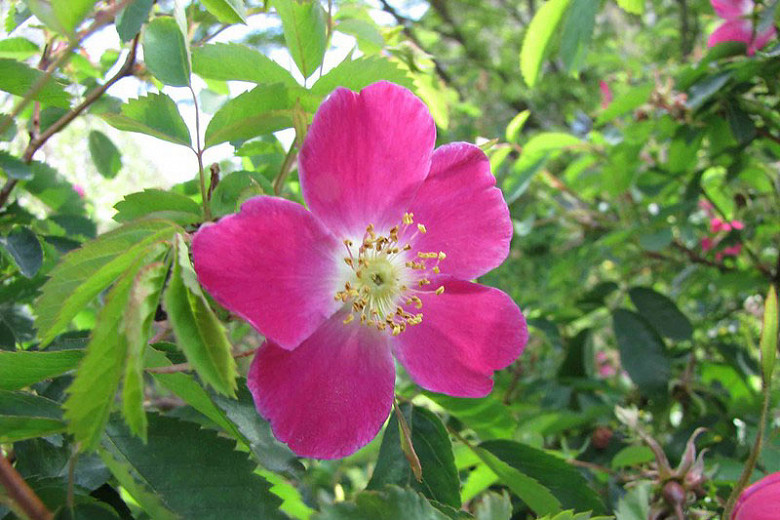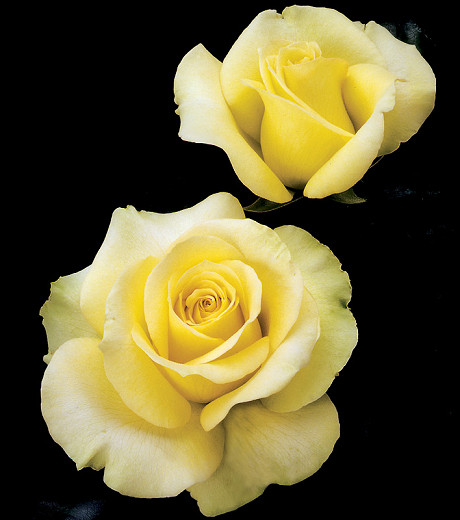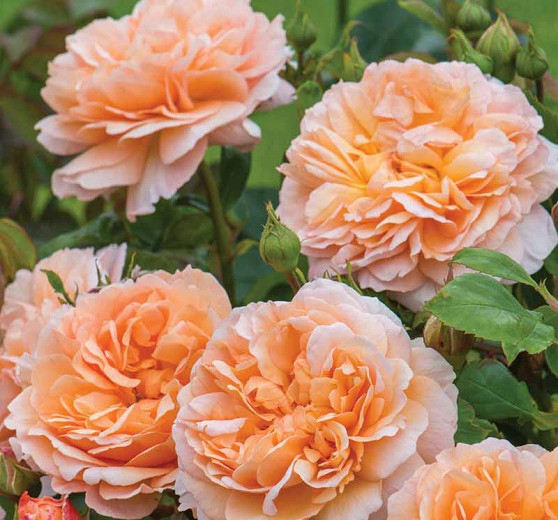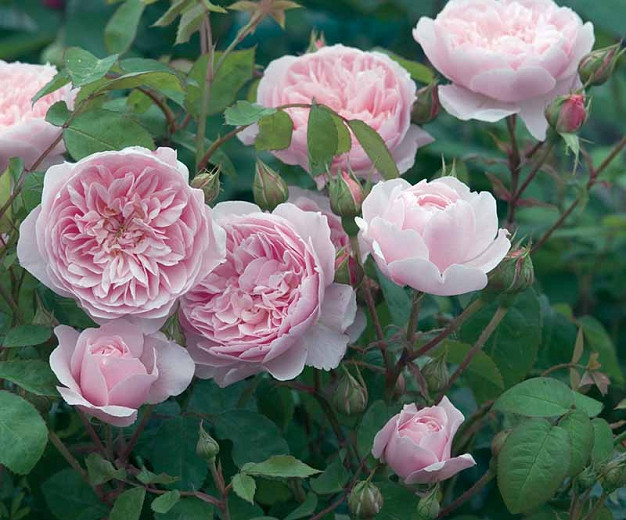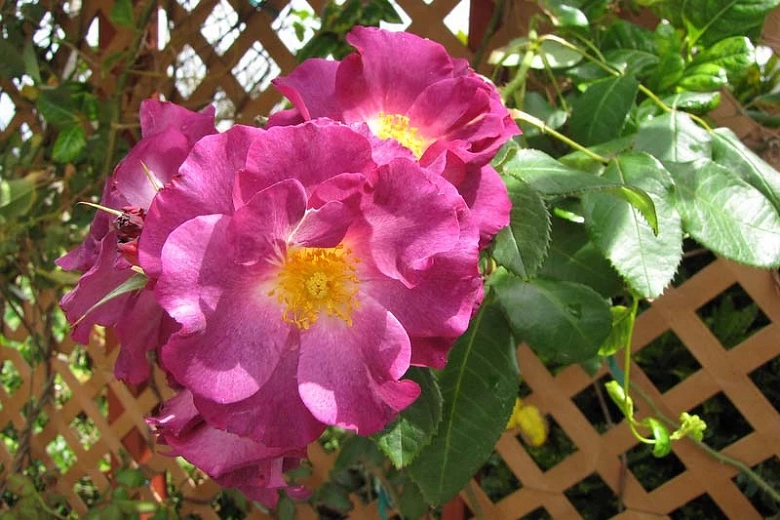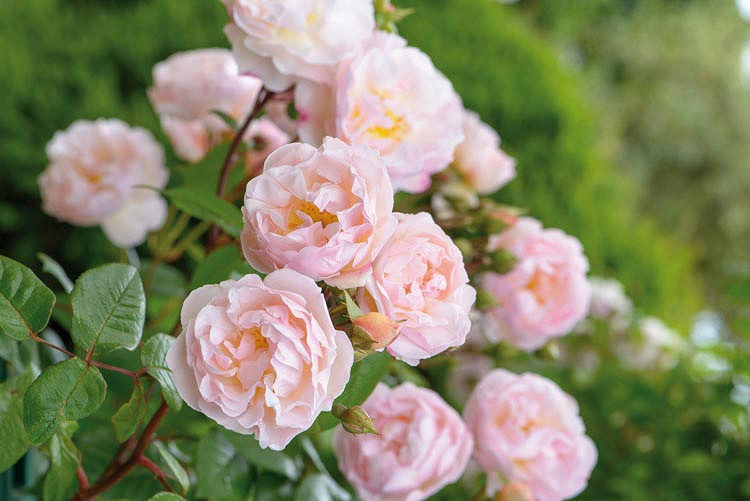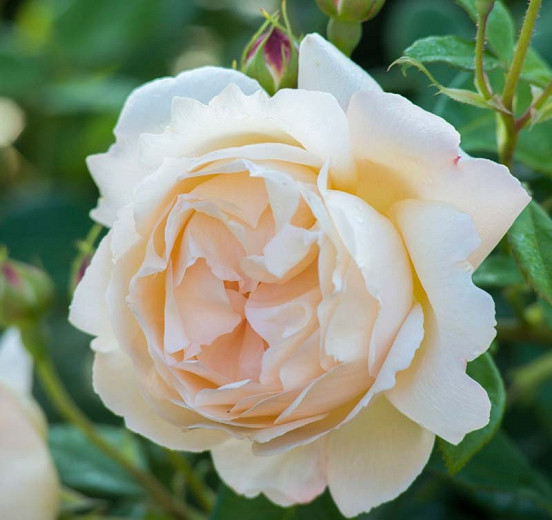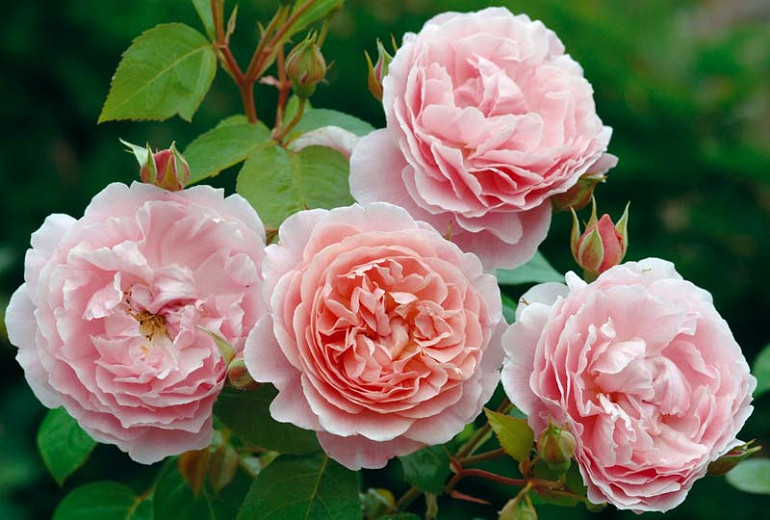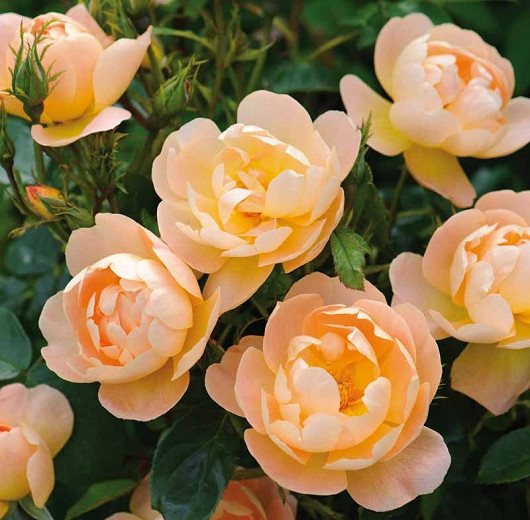Rosa nitida (Shining Rose)
Noted for its pretty flowers and great fall color, Rosa nitida (Shining Rose) is a dwarf, suckering, deciduous shrub producing many thin, reddish stems, densely-covered in fine prickles and bristles. Its foliage of shiny, pinnate leaves adorned with 5 to 7 slender leaflets, turns brilliant shades of red, yellow and purple in fall. In early to late summer, Shining Rose is covered with a plentiful array of sweetly scented, single, rosy-pink flowers, 2 in. across (5 cm), with yellow central stamens. As an extra bonus, the flowers are followed by small, oval, bright red rose hips. They persist throughout winter to the delight of hungry birds who will feast on them. Shining Rose is a lovely addition to a wildlife garden and is excellent in mass plantings and as a groundcover. Native to bogs, swamps, wet thickets of northeastern North America, Shining Rose can also be planted along ponds and streams.
- Grows up to 2-3 ft. tall and wide (24-36 cm). This rhizomatous shrub can form dense colonies, spreading via roots.
- Best grown in full sun or part shade in moist to wet soils.
- This ravishing shrub is a superb addition to prairies and meadows and creates a lovely groundcover.
- Keep an eye out for aphids, leafhoppers, scale insects, caterpillars, large rose sawfly, rose leaf-rolling sawfly, leaf-cutter bees, rose black spot, rose rust and rose powdery mildew.
- Attractive to birds, bees and butterflies. Deer and rabbits may cause damage.
- Do not remove spent flowers if you want to enjoy a beautiful crop of rose hips in fall and winter.
- Do not prune after flowering if hips are required.
- Propagate by semi-ripe cuttings in late summer or hardwood cuttings in autumn.
- Native to eastern North America, from Connecticut north to Newfoundland and Quebec.
Requirements
| Hardiness | 4 – 7 |
|---|---|
| Plant Type | Roses, Shrubs |
| Plant Family | Rosa – Shrub Roses, Rosa – Roses |
| Exposure | Full Sun, Partial Sun |
| Season of Interest | Summer (Early,Mid,Late)Fall |
| Height | 2' – 3' (60cm – 90cm) |
| Spread | 2' – 3' (60cm – 90cm) |
| Spacing | 36″ (90cm) |
| Water Needs | Average, High |
| Maintenance | Low |
| Soil Type | Chalk, Clay, Loam, Sand |
| Soil pH | Acid, Alkaline, Neutral |
| Soil Drainage | Moist but Well-Drained, Poorly Drained, Well-Drained |
| Characteristics | Fragrant, Showy, Fruit & Berries |
| Native Plants | United States, Midwest, Ohio, Northeast, Connecticut, Maine, Massachusetts, New Hampshire, New York, Rhode Island, Vermont |
| Tolerance | Wet Soil |
| Attracts | Bees, Birds, Butterflies |
| Garden Uses | Beds and Borders, Bog Gardens, Ground Covers, Ponds and Streams |
| Garden Styles | Coastal Garden, Informal and Cottage, Prairie and Meadow |
